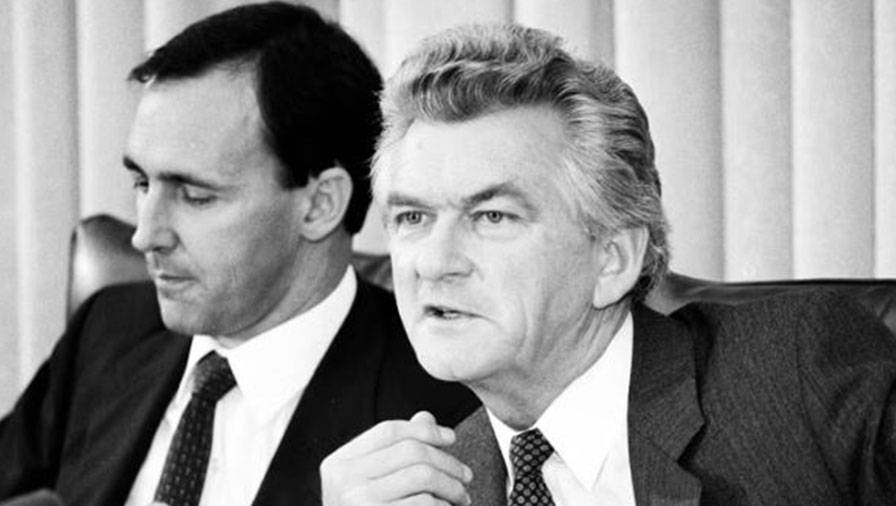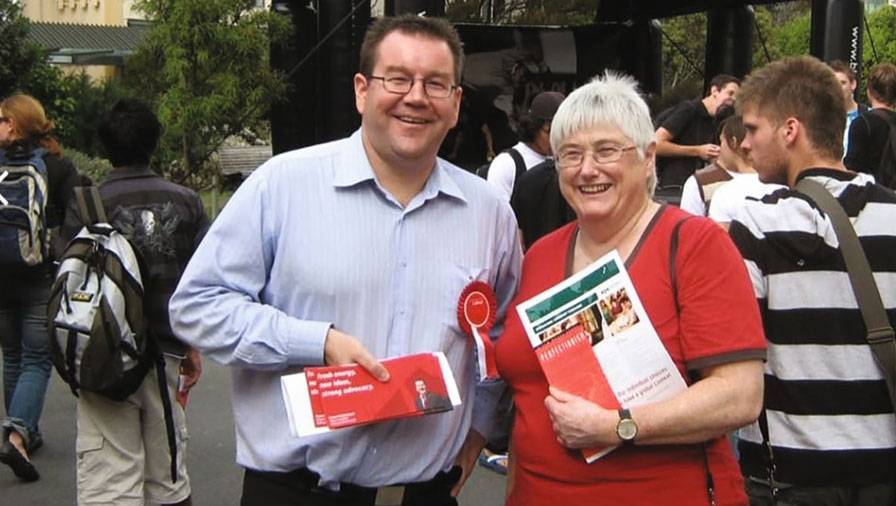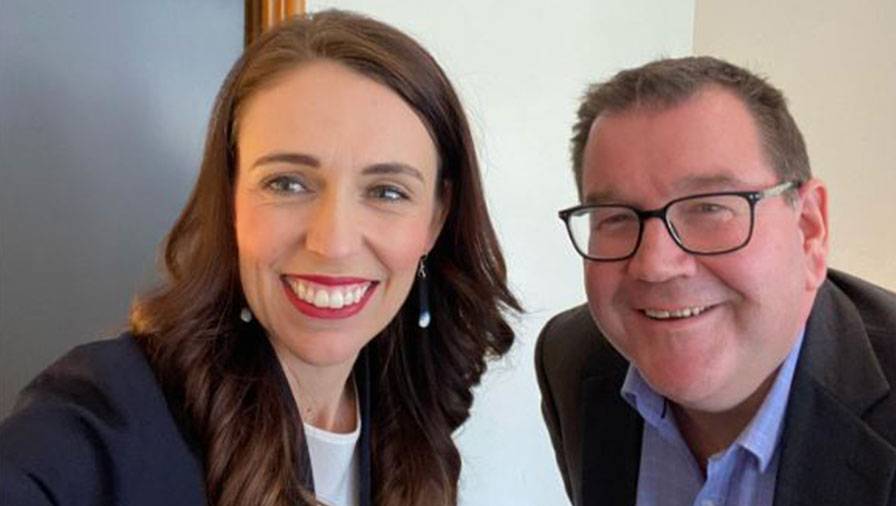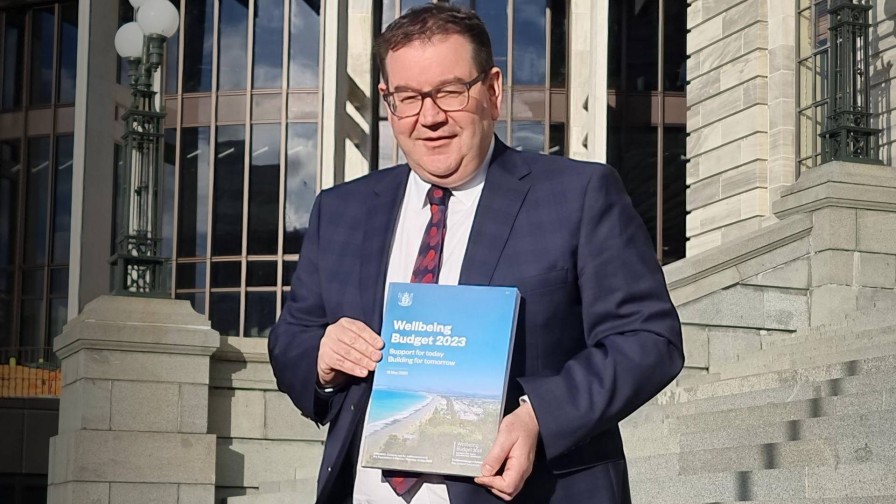In the land of lost opportunities
Former minister of finance and deputy leader in the Labour Government reveals few regrets in memoir.
Anything Could Happen: A memoir, by Grant Robertson.
Former minister of finance and deputy leader in the Labour Government reveals few regrets in memoir.
Anything Could Happen: A memoir, by Grant Robertson.
A government-backed economic summit has urgently begun policy work in 10 areas, including axing hundreds of ‘nuisance’ tariffs, reducing the complexity of the national construction code, and reforming environmental approval laws.
The three-day roundtable released advice from regulators on what red tape could be cut, speeding up approvals, building more homes, accelerating work that commenced last parliamentary term on a plan to encourage more investment in artificial intelligence, and progressing a model for a national road-user scheme to eventually replace fuel excise. Other areas for reform were superannuation rules, skills, foreign investment approvals, and competition policy.
Sound familiar? It ought to, as the above description is reportable from an event held recently by Australia’s Federal Labor Government to reboot its ailing economy.
Meanwhile, across town in Canberra, an alternative summit – the Real Productivity Roundtable – rallied support for a return to the neoliberal policies that had created Australia’s long period of unbroken growth. Speaking at this event, a former Treasury assistant secretary, David Pearl, drew a parallel between the existing economic settings and those that preceded the reforms of the 1980s.
He cited these as removing all fiscal constraints on government, embracing unaffordable welfare programmes, and sneering at the notion of balanced budgets. He blamed both Liberal-led Coalition and Labor Governments, as well as institutions such as the Treasury and the Productivity Commission.

Australian Prime Minister Bob Hawke, right, and Paul Keating floated the dollar on December 12, 1983.
“While the task of overturning a failing economic model is a daunting one, we succeeded in doing it before,” he said. “Policy revolutions must start somewhere, as we discovered when [Labor Prime Minister Bob] Hawke floated the dollar in 1983.”
I repeat the question: sound familiar? Pearl’s analysis of why governments on both sides of the Tasman are failing economically is confirmed by another worrying piece of research, this time from The Economist.
It used an untranslatable Yiddish phrase, ‘farshlepteh krenk’, to describe an illness that won’t go away: the lingering effects of inflation in some rich-nation economies since 2022. It won’t be a surprise that the four countries with the worst “inflation entrenchment” among the 10 leading Western economies are the Anglophone ones.
Britain is top, followed by the US, Australia, and Canada. All have increased their budget deficits by 2% of GDP, while the other six countries have contracted theirs. It is not hard to place New Zealand in the first group; nor is it hard to understand the reason.
It is explained without embarrassment by the man who managed the government’s finances for six years from October 26, 2017, to November 27, 2023. Grant Robertson’s Anything Could Happen is the kind of rollicking read you would expect from someone who doesn’t take economics too seriously and who had “never properly forgiven the Labour Party for Rogernomics” when he volunteered to campaign for it in the first MMP election.
It was 1996 and Robertson had moved to Wellington from Dunedin during five years of activism on behalf of university students wanting a fees-free education. He was “desperate” to ensure Richard Prebble, the successful Act Party candidate, was not elected.

Grant Robertson and Marian Hobbs during the 2008 election campaign.
After that failure, Robertson swapped student politics for a job in the public service. His quick rise in the Ministry of Foreign Affairs and Trade landed him a post at the United Nations in New York, where he met then Prime Minister Helen Clark.
A couple of years later, Robertson was back in Wellington, appointed political adviser to Wellington Central’s Marian Hobbs – who was struggling as a first-term minister – and then vaulted into Clark’s office. He was soon joined by Dame Jacinda Ardern, still in her 20s and back from a brief spell in London.
Robertson describes this remarkable trajectory in his life with the same degree of serendipity and good fortune as Ardern does in her autobiography, A Different Kind of Power. Their similarity is striking, as neither came from born-to-rule families, and both admitted to a dose of imposter syndrome in later reaching the pinnacle of political power. Neither did so from a previous position of responsibility.
Both reveal little of value to historians or those eager for untold political gossip. Both accept their failures in government were lost opportunities. They had been Opposition MPs for three terms, during which Sir John Key’s National-led Governments maintained the economic legacy left by Clark and her finance minister Sir Michael Cullen.

Dame Jacinda Ardern and Grant Robertson take a selfie before an election rally in 2020.
A series of scandals had weakened National’s reputation for good government, but the close-run election of 2017 wasn’t Labour’s to win without the nod of New Zealand First’s Winston Peters. Labour had been through a series of leadership ructions, with the Ardern-Robertson camp managing to curb the ambitions of David Cunliffe and then staging its own coup against the hapless Andrew Little.
While Ardern skirts over much of the drama in these years, Robertson is refreshingly candid about the first term, dealing with Peters and the unwinding of the neoliberal settings that had made New Zealand the ‘rock star’ economy. The first pillar to go was the Reserve Bank’s strict monetary policy.
Peters pushed the change as part of his power-sharing agreement. Robertson confesses his ignorance of macroeconomics but claims he wasn’t going to be intimidated by the “high priests” of monetarism. He simply views the official cash rate as “psychology with numbers” – a tool to influence behaviour.
Not content with changes demanded by Peters, Robertson goes further and links the bank’s core function to employment, saying this was common in other jurisdictions. Advice came from Craig Renney, a British socialist economist who was recruited by the Treasury in 2012. He is now the head of policy at the Council of Trade Unions.
The changes were implemented against the advice of Graeme Wheeler, the last of the old-school RBNZ governors. The appointment of Adrian Orr as his successor quickly follows. Eight years on, the fallout from those decisions has been disastrous for the central bank’s standing.
Robertson ignores this, of course, as he does the consequences of Renney’s failed Wellbeing Budget experiment, which also trashed the Treasury’s reputation. It is only now trying to recover its former status with some long-overdue fiscal analysis.
An interesting relic from this time is a set of fiscal responsibility rules Robertson agreed with then-Greens co-leader James Shaw to bolster the economic credibility of a left-wing government. This was another Renney idea that was tried by Gordon Brown, a former British Labour prime minister. Among other things, the rules pledged to reduce the level of net core Crown debt to 20% of GDP within five years of taking office and maintain a government spending to GDP ratio of about 30%.

Grant Robertson with his last wellbeing Budget in May 2023.
The Covid-19 response put paid to that and nothing like it has been attempted since. Robertson spears the notion that Peters is a fiscal conservative, saying: “He had no shortage of ideas on how he and his colleagues could spend money.”
Freed in a second term of the Peters “handbrake” – which Robertson attributes to an inability to make decisions – the final three years with Labour solely in charge are recounted in the same kind of rush that also plagued this Government.
“Too far and too fast” was Robertson’s accusation against Rogernomics, made when he was a student. Yet those benefits largely remain intact, which is more than can be said about Labour’s big-ticket reforms. Three Waters, separate Māori health, the polytechnic and broadcasting mergers, resource management reforms, and public service bloat have all been reversed.
Only free school lunches continue, at much cost to a government that didn’t want them. Robertson’s biggest regrets are the failure to increase taxes on the rich and an income insurance scheme that never got off the ground. It was calculated that a tax on 46,000 wealthy people would yield $3.4 billion ($74,000 per taxpayer). That amount is spent annually on accommodation subsidies.

Grant Robertson with brothers Stephen, centre, and Craig in Washington DC, 2016.
Robertson twice stood and lost bids for the Labour leadership. He calls the February 2022 protest at Parliament an “anti-authority, anti-science, pro-chaos shit show”. Severe back pain and a panic attack occurred at a critical time when Ardern decided to quit.
But there are positives aplenty in Robertson’s story. He and his two brothers all had successful careers, due to a devoted mother and despite the family’s setback of the father being jailed for fraud, partly driven by the family’s high aspirations.
As sports minister, Robertson was revered for his knowledge and enthusiasm. He recognised he was gay as a fourth former, the same year as the Homosexual Law Reform Act was passed. He has had a long-lasting personal relationship, and the opportunity to start anew back at the University of Otago as vice chancellor.
Anything Could Happen: A memoir, by Grant Robertson (Allen & Unwin).
Nevil Gibson is a former editor-at-large for NBR.
Sign up to get the latest stories and insights delivered to your inbox – free, every day.